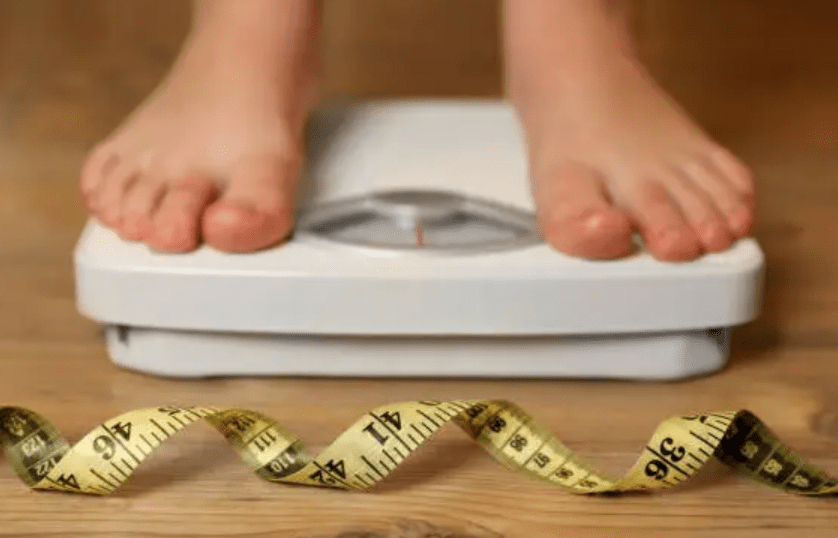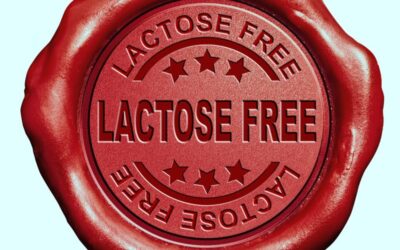IBS (irritable bowel syndrome) isn’t life threatening, but it can be debilitating and have a significant impact on the lives of sufferers and their families. People often use different strategies to navigate tricky situations, such as avoiding nights out, shopping and even holidays. It can also affect work life, with sufferers needing time off to manage their IBS symptoms or visit their GP. However, I’m frequently asked the question is “Does the low FODMAP diet mean weight loss?”. In this blog I’ll explain the principles of the low FODMAP diet and how it can affect weight. But, if you’re looking specifically for a weight loss diet, this may not be the best diet for you….
What is the low FODMAP diet?
So, what are FODMAPs? This is an easy term for: Fermentable Oligosaccharides, Disaccharides And Polyols (so you know now why we call them FODMAPs!) The low FODMAP diet is specifically an elimination diet that helps to identify the triggers that cause the symptoms of IBS. It’s not, as some believe, designed for weight loss. The low FODMAP diet is ‘evidence-based’ and importantly, only a temporary diet. Research shows that the low FODMAP diet improves symptoms in over 75% of IBS sufferers. IBS treatment involves 3 phases: elimination; reintroduction; and personalisation. The elimination phase reduces IBS symptoms and lasts around 4-8 weeks. Once your symptoms are reduced and stable, you can begin the reintroductions, which takes 6-10 weeks. Reintroducing foods enables you to identify FODMAPs which trigger your symptoms. This is very individual, as triggers are different for each IBS sufferer. Once you’ve identified your triggers, you can enjoy FODMAP foods that don’t cause symptoms, whilst avoiding or limiting those that do. This is the personalisation phase.
Is the low FODMAP diet a weight loss diet?
NO, is the simple answer! There are plenty of weight loss diets out there, so only try this if you have IBS. However, it is true that some people do lose weight on this diet and it can help to kick-start further weight loss. My advice to IBS sufferers who also want to lose weight, is to sort out your IBS first. Initially, following the low FODMAP diet does reduce bloating and discomfort, which translates into the feeling of weight loss, even though the scales stay the same. After a few weeks of strict low FODMAP foods, many report actual weight loss. This may be welcome for some, but not so good for others. For those who are underweight, this can be an important consideration. You will need to have extra low FODMAP snacks and nutritious drinks to prevent further weight loss and even promote some weight gain. It’s therefore important to ensure that this is under the guidance of a Specialist IBS Dietitian trained in FODMAPs. If you have IBS and need to gain or lose weight, check out my webpage.
Is the low FODMAP diet for me?
Before starting the low FODMAP diet, take a look at these FAQs. If you’ve had a sudden change in bowel habits; blood in your stools; or sudden weight loss you should see your doctor. Long-standing IBS symptoms, may also need investigating to rule out other causes for your symptoms. IBS sufferers preferably want a quick fix, but even simple changes to your diet can help. If you have IBS-D, IBS-C or a mixture of both, see previous blogs for more information on simple lifestyle changes. The low FODMAP diet could be the next step if you’ve already made some changes to your diet and lifestyle. It’s tricky to tackle alone, which is why the best results are seen with expert help from an IBS Dietitian. Usually only 2 sessions are needed and I can share my experience and practical tips to help you throughout the process.
Change your life in just three sessions
Need help to manage your IBS symptoms? I have a base in Cardiff and Bristol, but work to improve gut health with IBS sufferers across the UK through online sessions. The vast majority of my clients have found that only three sessions are needed before they feel confident to move forward on their own. I will send you booklets, which have an extensive list of all the foods you can eat on the low FODMAP diet. I’m available for advice and support between sessions. Find out more about via my website. I offer a free discovery call for you to decide whether the low FODMAP diet is right for you. So give me a call or fill out the contact form.
Many of my clients say that working with a specialist IBS dietitian has been life-changing, and are finally managing to live more comfortable lives. Read about previous client experiences
To help you decide it this is the right approach for you, see my webpage about IBS treatment.
Disclaimer: This blog is for informational purposes only and should not be considered medical advice. If you are experiencing persistent digestive symptoms, please consult a healthcare professional.




